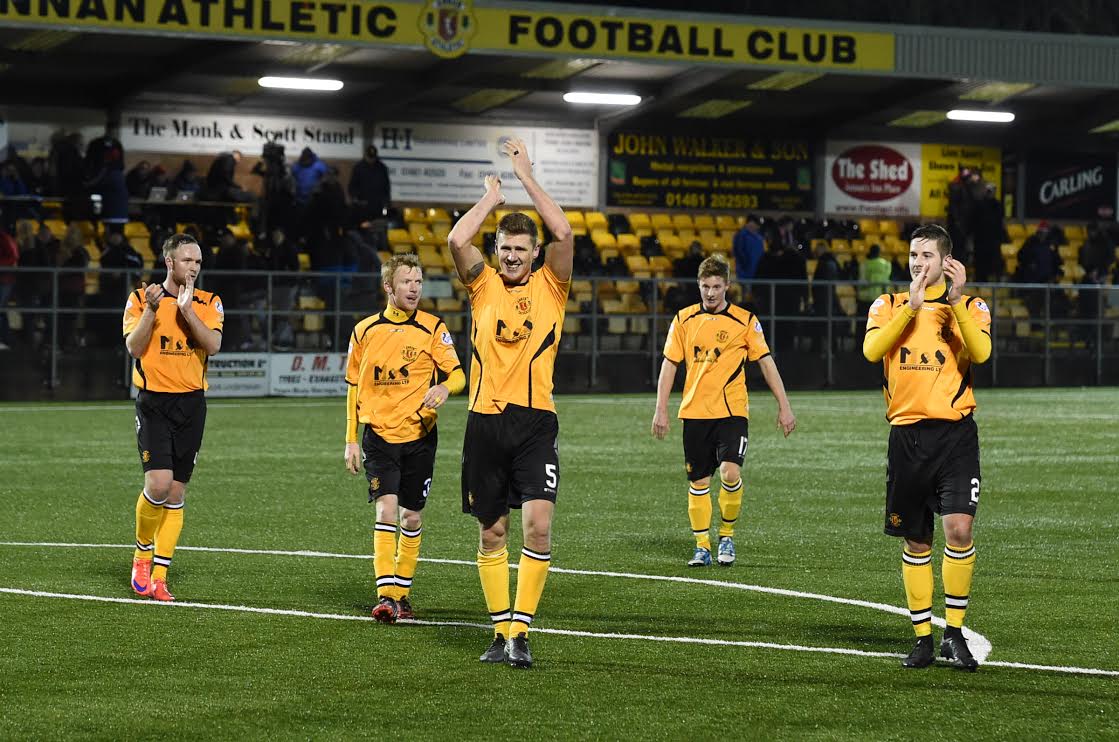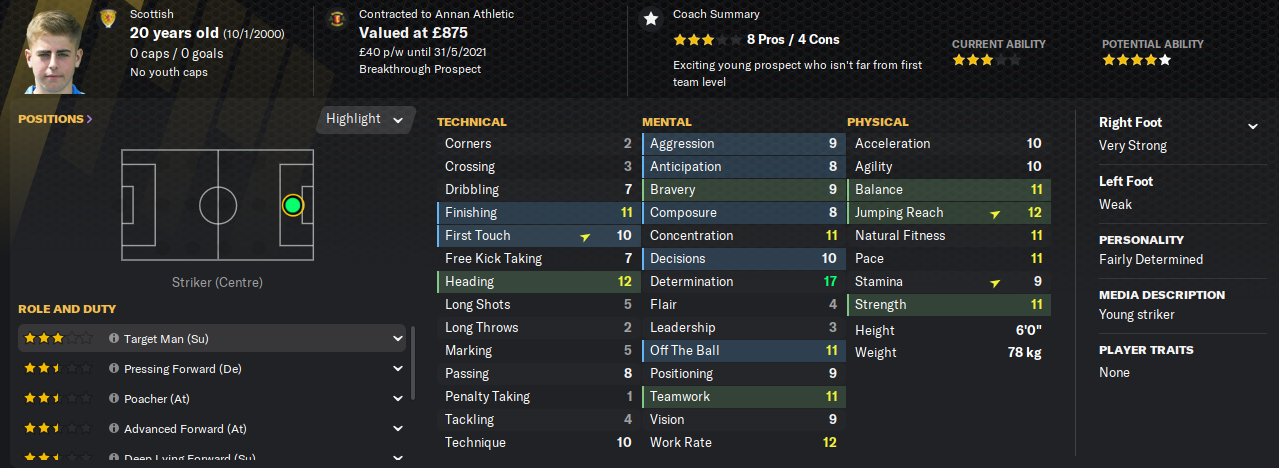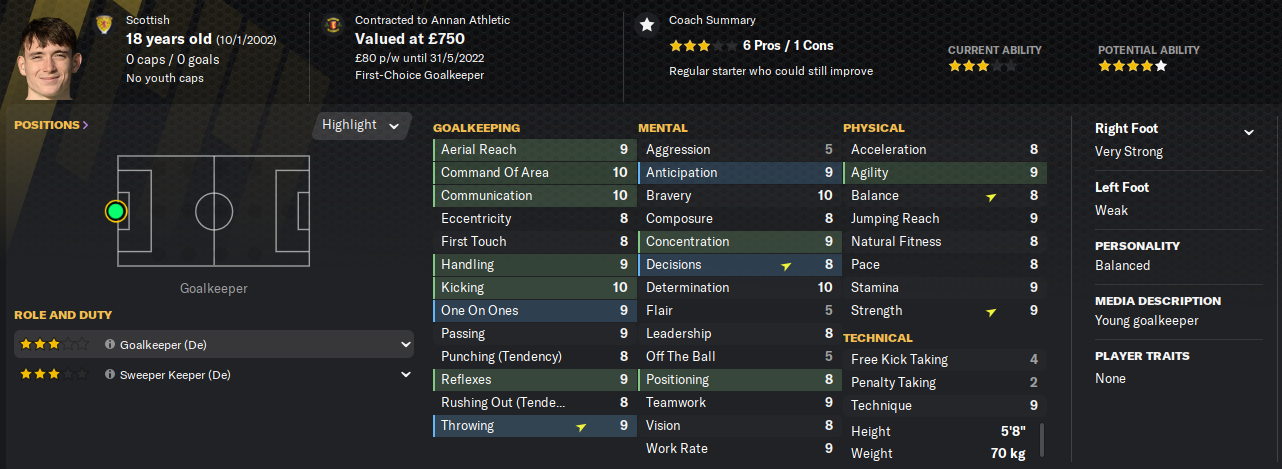
Thousands upon thousands of young lads are sold the dream every single year. Scouts acting on behalf of their multi-million pound employers who are in search of the next star that supporters present in the stands can boast about as "one of their own."
There are limited opportunities afforded however and that is something not quite expressed to the thousands of lads brought into academies when the contract is brandished in front of their wide-eyes as they realise this is their opportunity to get onto the ladder of going on to play professional football.
It's a sad reality that there is more heartbreak than success and it seems cruel to suggest anything otherwise.
Despite the huge numbers housed in academies, the opportunity to win a professional contract is growing increasingly slim with clubs in England often looking abroad for established talent rather than casting their attention to the youth academies that are built into the foundations of the football club. It seems that idea is almost from a bygone era.
Clubs have high expectations of these young players. Young players of whom are still in full-time education and still maturing as people.
Ross McAloone was accepted into Newcastle United's academy at the age of twelve after impressing for his local side, Dumfries Athletic, back in his hometown of Annan. His parents, Kathryn and Graeme McAloone, helped their son make the ninety minute journey to training at least four times a week which had a significant impact on the finances of the family with little support from the football club.
It was something that Ross was grateful for and only helped boost his motivations to want to succeed. He promised his parents that he would dedicate himself entirely to the game in order to increase his chances of earning a contract and therefore allow him to compensate his parents in the future for the sacrifices they made for their son.
Ross was a gifted central midfielder. He had obvious footballing ability and work-rate but displayed an intelligence on-and-off the ball that was beyond his tentative years.
He heard very little in the way of opinion on his overall game from the coaching staff at the club but remained confident to the idea he was impressing, nevertheless.
At the end of the 1998/1999 season and following three years in the youth development system at Newcastle, Ross was invited to discuss whether he would be receiving a professional deal upon turning sixteen. A brief ten minute conversation was enough to dismiss Ross as he was told that he would be released that summer.
Just one professional contract was offered amongst the eighteen boys invited to hold talks that day.
"It was cruel," Kathryn McAloone recalls. "Ross had put one-hundred percent into everything and to be dismissed so abruptly... it was unsettling. There was no support put in place to assist him with the next steps. That was it. He was just expected to get on with it."
Ross struggled in the months following his release and tried to keep in contact with some of the other boys who were also released, none of whom were able to find another club willing to take them on. More worryingly however, it soon emerged that one of the boys had ultimately took his own life.
The coroner who presided over the inquest into his death spoke candidly about the circumstances that led up to his passing. She was precise in her words and spoke with a great level of passion. "I find it was that pivotal point that crushed that young man's life and, so with it, his dreams." She stated.
"Football clubs have a duty to support its players and on this occasion it has failed to do so. I am acutely aware that this is a problem that is rampant throughout football and this tragic case should issue a warning and reminder to those clubs about the duty of care they have to support their players. This shouldn't stop upon their release.
It seems to me that for whatever reason, those in charge of supporting these young players have forgotten the people attached to the player and they have been viewed as nothing more than a statistic. I order for there to be significant change." The coroner concluded.
A sobering experience, Ross spent a year out of football with his father expressing that his son had lost his focus and motivation entirely.
"It was understandable. He was thrown out of the academy system with little recognition for the wider consequences it could have. He was out in the wilderness. I lost my son that year - he was a shadow of his former self and it was quite difficult to watch. It seemed like there was nothing that neither myself or my wife could do to help."
Graeme remembers the breakthrough conversation he shared with his son that restored his desire to want to get back into the game.
"Something had to change and I remember being honest with him. I knew Ross loved football - even through that sabbatical, he was still watching football religiously. I challenged him to pick himself up and prove those c*nts at Newcastle wrong. There was nothing that I wanted more and I just needed my son to believe in himself and want to do that himself. Ross was previously a confident player and it was a steady process to rebuild that confidence but we eventually got there."
McAloone had numerous trials throughout England and Scotland with mixed results. He trialled at the likes of Gretna, Carlisle and Queen of the South without obtaining a deal.
"I would have liked one of those spells to work out," Ross states, "but I think rejection didn't scare me as much as it did. I received some kind words from Roddy [Collins] at Carlisle which spurred me on again. I was playing well ignoring the run at Gretna... bit of a nightmare that one!" Ross laughs, recalling how he was sent-off after half an hour after a contentious challenge. "50-50 it was!"
"But the experiences were important to helping me mature and I think that served me well in the long run. What happened at Newcastle was perhaps the lowest of the low so knowing that it couldn't have gotten any worse made me determined to want to go out there and give it another go."
Although Ross never went on to sign for a professional side after leaving Newcastle, he signed for Scottish Division Two (now known as Scottish League One) side Berwick Rangers in 2001. He spent seven further years at Shielfield Park winning promotion back to the third tier after relegation in 2005 before going on to sign for his hometown club, Annan Athletic, in 2008 following their election to the Third Division after the demise of Gretna.
"I was fortunate to call Berwick my home for a number of years. They took a chance on a young lad and I had a good relationship with the supporters. I made just shy of 200 appearances for the club, so it was difficult to walk-away when I did but I couldn't ignore the opportunity that came my way when Annan were elected into the Third Division."
Berwick were relegated the previous season and therefore McAloone would clash with his previous employers in Annan's inaugural campaign in the Scottish Football League system.
"I was approaching the prime of my career and extremely grateful for the opportunities Berwick gave me. The supporters were nothing but excellent when the two sides met again, just as I thought they would be. There was some banter from the terraces which I enjoyed as I always did - that was one highlight of playing in the lower-divisions."
McAloone retired in 2013 at the age of thirty citing that he felt it was the right time to focus on the next stages of his development after amassing a career he was "extremely pleased and grateful for" in view of his early set-backs at Newcastle.
"Whilst I never reached the levels I perhaps dreamt of as a child, I was grateful. I have memories that I will never forget and I met some fantastic people along the way."
From then on, McAloone set his sights on coaching and gained his Continental B License in January 2019 whilst coaching alongside Peter Murphy at Annan.
"I'm hopeful that one day I can be granted the opportunity to get into management. It's something I have wanted to do for a while and I think with the experiences I went through as a player I have a lot that I can teach and share with players.
For now though, I am enjoying my time here at Annan working alongside Peter. When I was invited back to the club, I couldn't refuse. His experience and knowledge has only helped me gain more confidence."
Annan finished seventh in Scottish League Two last season - a division they have remained in since election in 2008 - after the season was curtailed early due to the Covid-19 pandemic.











